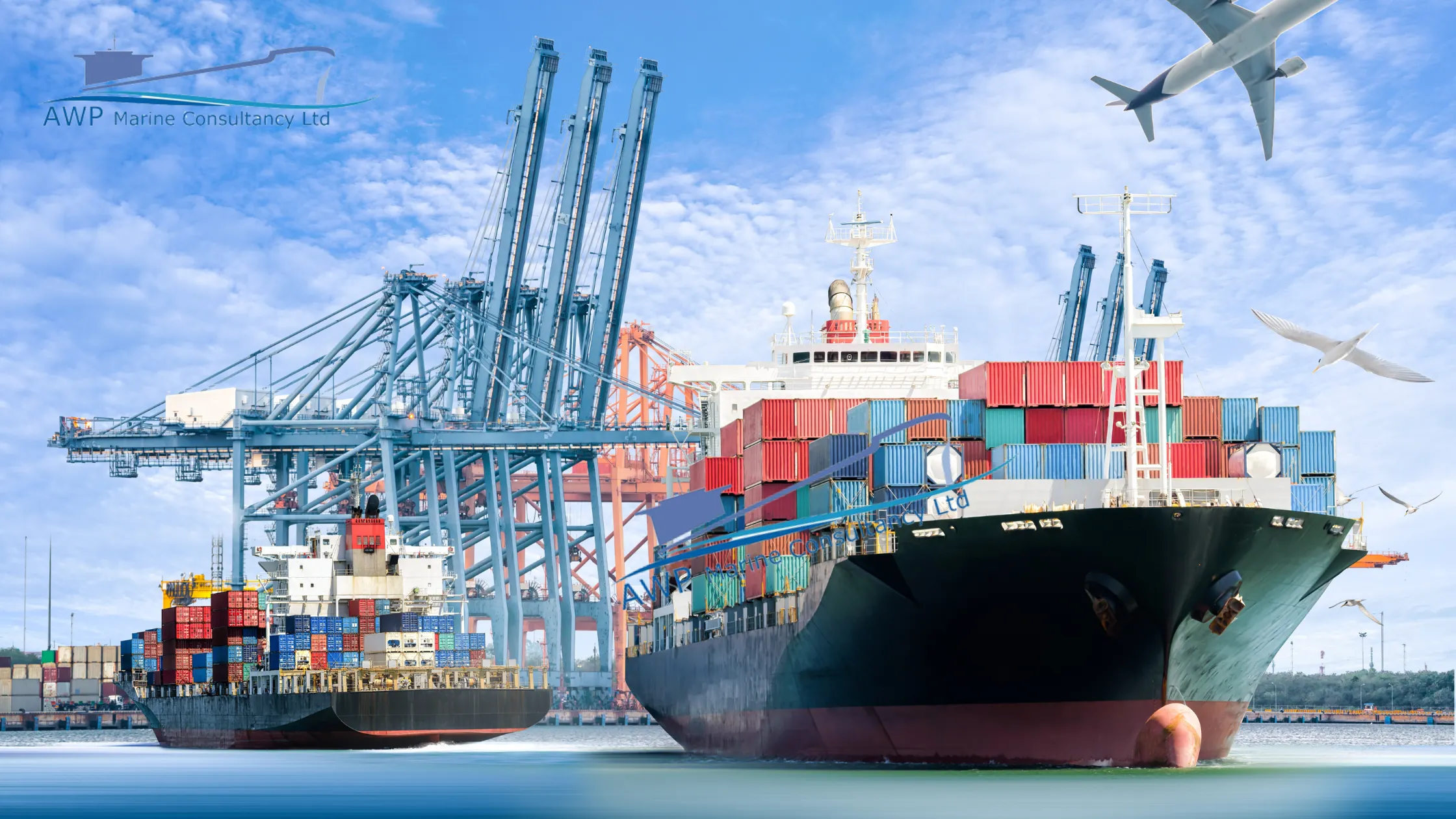Ensuring Port Safety: Key Steps in a Marine Terminal Inspection
The safety of marine terminals is critical to global trade, as they handle the transfer of oil, gas, chemicals, and bulk cargo daily. Ensuring that marine terminals operate safely and efficiently requires thorough inspections and compliance with international safety standards.
At AWP Marine Consultancy Ltd, we specialise in unbiased, professional, and comprehensive marine terminal inspections, helping terminal operators identify risks, improve safety, and maintain compliance. But what exactly goes into a marine terminal inspection, and why is it so essential? Let’s explore.
Why Marine Terminal Inspections Are Crucial
Marine terminals must adhere to strict safety, operational, and environmental regulations to prevent incidents such as oil spills, cargo contamination, and operational delays. Regular inspections ensure that all safety protocols are in place and that terminals meet both national and international standards.
By working with AWP Marine Consultancy Ltd, terminal operators benefit from expert insights, risk mitigation, and tailored safety recommendations, ensuring smooth and efficient operations.
Key Steps in a Marine Terminal Inspection
1. Pre-Inspection Planning and Risk Assessment
Before an inspection begins, a detailed risk assessment is conducted to:
✔ Identify potential hazards in terminal operations
✔ Review past safety records and previous inspection reports
✔ Determine specific regulatory compliance requirements
At AWP Marine Consultancy Ltd, we use our industry expertise to develop a customised inspection plan tailored to the terminal’s specific needs.
2. Structural and Equipment Safety Checks
A critical part of any terminal inspection is assessing the physical condition of the infrastructure and equipment, including:
✔ Loading arms, pipelines, and transfer hoses to check for leaks, corrosion, and mechanical issues
✔ Mooring and berthing facilities to ensure safe vessel docking and departure
✔ Firefighting and emergency response systems to confirm operational readiness
These checks ensure that all equipment is in good working order, minimising the risk of failures that could lead to accidents or downtime.
3. Compliance with International Safety Regulations
Ensuring compliance with global marine safety regulations is a key part of an inspection. Our experts verify adherence to:
✔ International Safety Guide for Oil Tankers and Terminals (ISGOTT)
✔ International Maritime Organisation (IMO) standards
✔ Oil Companies International Marine Forum (OCIMF) guidelines
✔ Port State Control (PSC) and local environmental laws
By working with AWP Marine Consultancy Ltd, terminal operators receive detailed reports and actionable recommendations to meet compliance standards effectively.
4. Cargo Handling and Operational Procedures
Safe and efficient cargo handling is essential in a marine terminal. Our inspections assess:
✔ Loading and unloading procedures to prevent cargo contamination or spillage
✔ Tank and pipeline integrity to avoid leaks and hazardous incidents
✔ Monitoring and control systems to ensure real-time operational oversight
Ensuring proper cargo handling prevents financial losses, environmental damage, and regulatory penalties.
5. Emergency Response and Crisis Management
Marine terminals must have robust emergency response plans in place to handle fires, spills, and security threats. During inspections, we evaluate:
✔ Fire safety drills and evacuation procedures
✔ Spill containment and response equipment
✔ Crisis communication protocols and staff training
By identifying gaps in emergency preparedness, AWP Marine Consultancy Ltd helps terminals implement stronger safety measures and reduce operational risks.
6. Personnel Training and Safety Awareness
A marine terminal is only as safe as the people working in it. That’s why we assess:
✔ Employee training programmes for handling hazardous cargo
✔ Personal protective equipment (PPE) compliance
✔ Workplace safety culture and hazard awareness
By ensuring that terminal staff are well-trained and follow best practices, we help create a safer working environment for everyone.
Why Choose AWP Marine Consultancy Ltd for Terminal Inspections?
At AWP Marine Consultancy Ltd, we provide:
✅ Unbiased and professional consultancy—ensuring that safety recommendations are practical and effective
✅ Global expertise—helping terminals comply with UK and international safety regulations
✅ Detailed safety reports—offering clear, actionable steps for continuous improvement
✅ Experienced Master Mariners and Chief Engineers—who bring real-world maritime experience to every inspection
By partnering with us, terminal operators gain a trusted safety partner committed to ensuring efficient and risk-free operations.
Conclusion
Marine terminal inspections are essential for maintaining safety, regulatory compliance, and operational efficiency. By conducting thorough assessments and implementing best practices, terminals can significantly reduce accidents, environmental risks, and costly disruptions.
With AWP Marine Consultancy Ltd, you gain access to industry-leading expertise, tailored inspections, and actionable insights that enhance terminal safety and performance.
Contact AWP Marine Consultancy Ltd Today
📍 Address: Dee House, Parkway, Zone 2, Deeside Industrial Park, Flintshire, CH5 2NS, United Kingdom
🌍 Website: www.wmtmarine.com
Ensure your terminal meets the highest safety and compliance standards—partner with AWP Marine Consultancy Ltd today!

